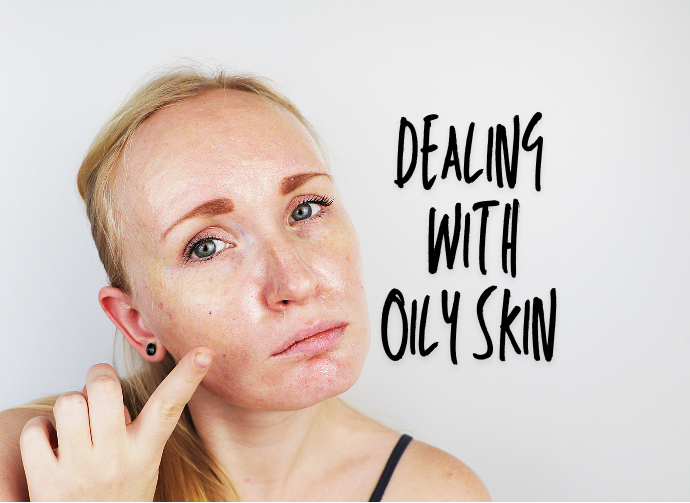Overwhelmed by your shiny T-zone or constant breakouts? If you have oily skin, rest assured you’re not alone. Understanding the factors contributing to excess oil production and finding the right products and strategies to manage it can significantly improve your skin’s appearance and overall health. In this blog post, we’ll research into effective tips and recommended products to help you tackle oily skin like a pro.
Daily Skincare Tips for Oily Skin
A proper daily skincare routine is vital for managing oily skin. By following some simple tips and choosing the right products, you can help control excess oil production and maintain a healthy complexion.
Cleansing Habits
On a daily basis, it is important to cleanse your face twice a day, in the morning and before bed, using a gentle cleanser specifically formulated for oily skin. Avoid harsh products that strip the skin of its natural oils, as this can actually trigger increased oil production. Pat your face dry with a clean towel and refrain from harsh scrubbing, which can irritate the skin and stimulate more oil production. Recognizing the importance of keeping your skin clean will help prevent clogged pores and breakouts.
Moisturizing and SPF Protection
An effective moisturizer and SPF protection are still necessary for oily skin. For instance, opt for oil-free, non-comedogenic moisturizers that hydrate the skin without clogging pores. Look for lightweight formulas that contain ingredients like hyaluronic acid or glycerin to maintain skin hydration. In terms of SPF protection, choose a non-greasy, broad-spectrum sunscreen with an SPF of 30 or higher to shield your skin from harmful UV rays without adding extra shine.
Essential Products for Oily Skin Management
Choosing the Right Products
To effectively manage oily skin, it’s necessary to choose products that are specifically formulated to address this concern. Look for skincare products that are oil-free and non-comedogenic. These products will help to control excess oil production without clogging pores, which can lead to breakouts. Additionally, opt for products that contain ingredients such as salicylic acid, niacinamide, or tea tree oil, known for their oil-controlling and acne-fighting properties.
Top Recommended Products for Oily Skin
Management of oily skin requires a targeted approach with the right products. Some top recommendations for oily skin include oil-free moisturizers, mattifying primers, and lightweight serums. Brands like La Roche-Posay, Cetaphil, and Neutrogena offer a range of products specifically designed for oily skin. These products help to regulate oil production, minimize the appearance of pores, and provide a matte finish without drying out the skin.
Another key product for oily skin management is a gentle cleanser. Look for a cleanser that effectively removes excess oil and impurities without stripping the skin of its natural oils. Cleansing twice a day with a gentle, non-abrasive cleanser can help maintain balanced oil levels while keeping the skin clear and refreshed.
Lifestyle and Dietary Considerations
Foods to Eat and Avoid
Many factors contribute to oily skin, including genetics, hormones, and diet. Maintaining a balanced and nutritious diet can help manage excess oil production. Foods rich in omega-3 fatty acids like salmon, walnuts, and flaxseeds can help regulate oil production. On the other hand, it is best to avoid overly processed and sugary foods, as they can exacerbate oily skin conditions.
The Role of Hydration and Exercise
Lifestyle choices such as proper hydration and regular exercise play crucial roles in managing oily skin. One’s hydration levels can impact oil production in the skin. Staying hydrated can help maintain skin’s natural balance and reduce excess oil. Exercise also promotes healthy circulation and can help regulate hormone levels, which in turn may benefit oily skin.
For instance, incorporating at least 30 minutes of physical activity into your daily routine can improve overall skin health by promoting circulation and reducing stress, which can contribute to oily skin. Hydrating with water throughout the day can keep your skin from producing excess oil in an attempt to compensate for dehydration.
Advanced Skincare Techniques
Masks and Exfoliation
Masks and Exfoliation
To effectively manage oily skin, incorporating masks and exfoliation into your skincare routine is important. Masks containing ingredients like clay or charcoal can help absorb excess oil and minimize the appearance of pores. Exfoliating regularly can also help remove dead skin cells and unclog pores, preventing breakouts.
When to See a Dermatologist
When to See a Dermatologist
It is crucial to recognize when your oily skin issues may require professional attention. If over-the-counter products are not providing relief, or if you experience severe acne, inflammation, or excessive oil production that is impacting your daily life, it is recommended to consult a dermatologist.
Techniques
Advanced skincare techniques like chemical peels, microdermabrasion, and laser treatments may be recommended by a dermatologist for severe oily skin conditions. These procedures can help regulate oil production, improve skin texture, and reduce acne scars. It is important to follow the advice of a skincare professional to determine the most suitable treatment for your individual needs.
Final Words
Summing up, dealing with oily skin can be a challenge, but incorporating the right tips and products into your skincare routine can help keep your skin balanced and healthy. Remember to cleanse your face regularly with products containing salicylic acid or benzoyl peroxide to control oil production. Using oil-free moisturizers and non-comedogenic makeup can also prevent clogged pores and breakouts. Consulting with a dermatologist for personalized advice is always a good idea if you are struggling to manage oily skin effectively. With the right approach and products, you can achieve a clear and radiant complexion despite having oily skin.
References
American Academy of Dermatology. “Skin care for oily skin.” (aad.org)
Dermatology Times. “Exfoliation.” (dermatologytimes.com)
American Academy of Dermatology. “Moisturizers: Options for softer skin.” (aad.org)
Healthline. “The 14 Best Mattifying Primers for Oily Skin 2022.” (healthline.com)


